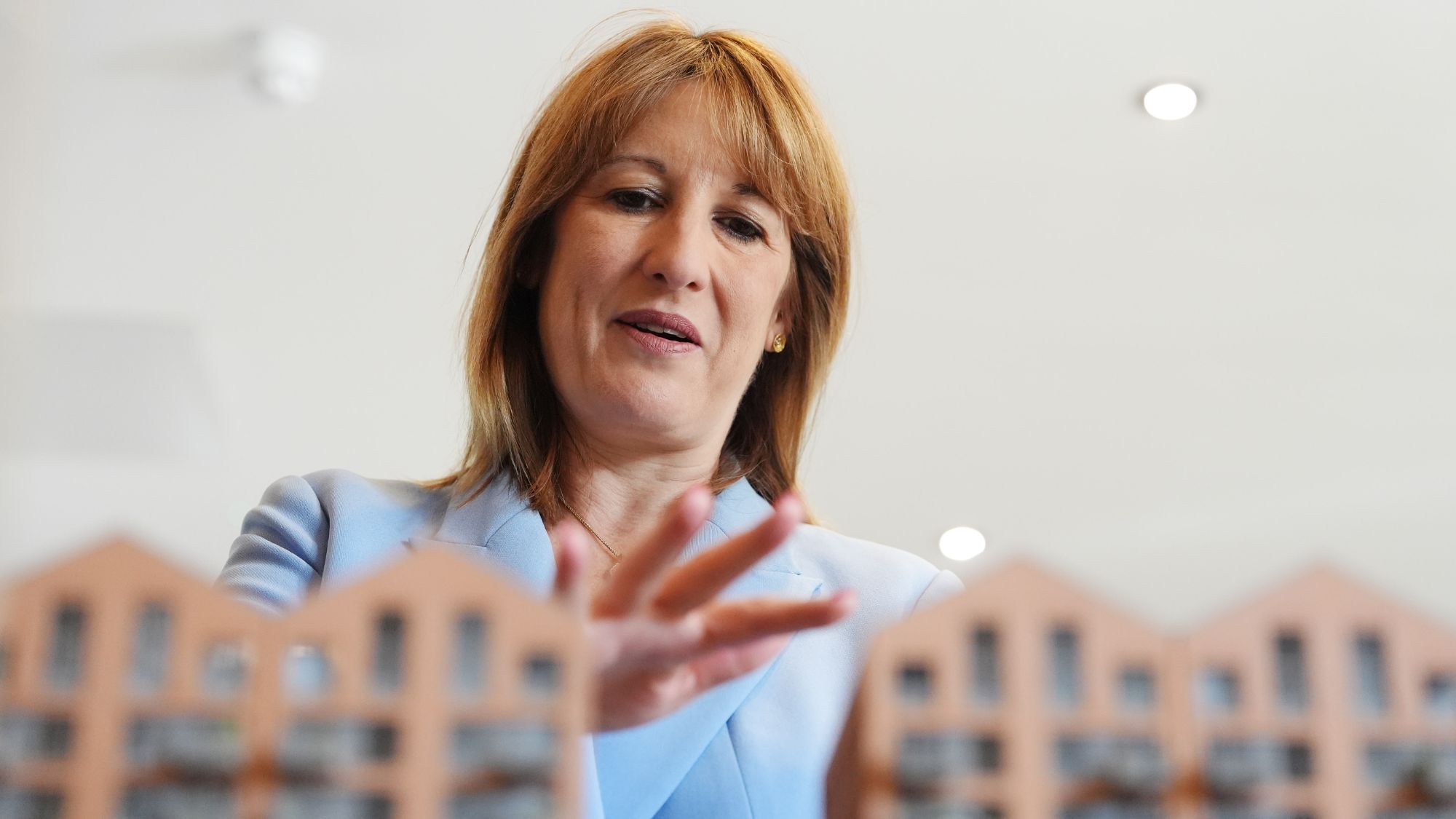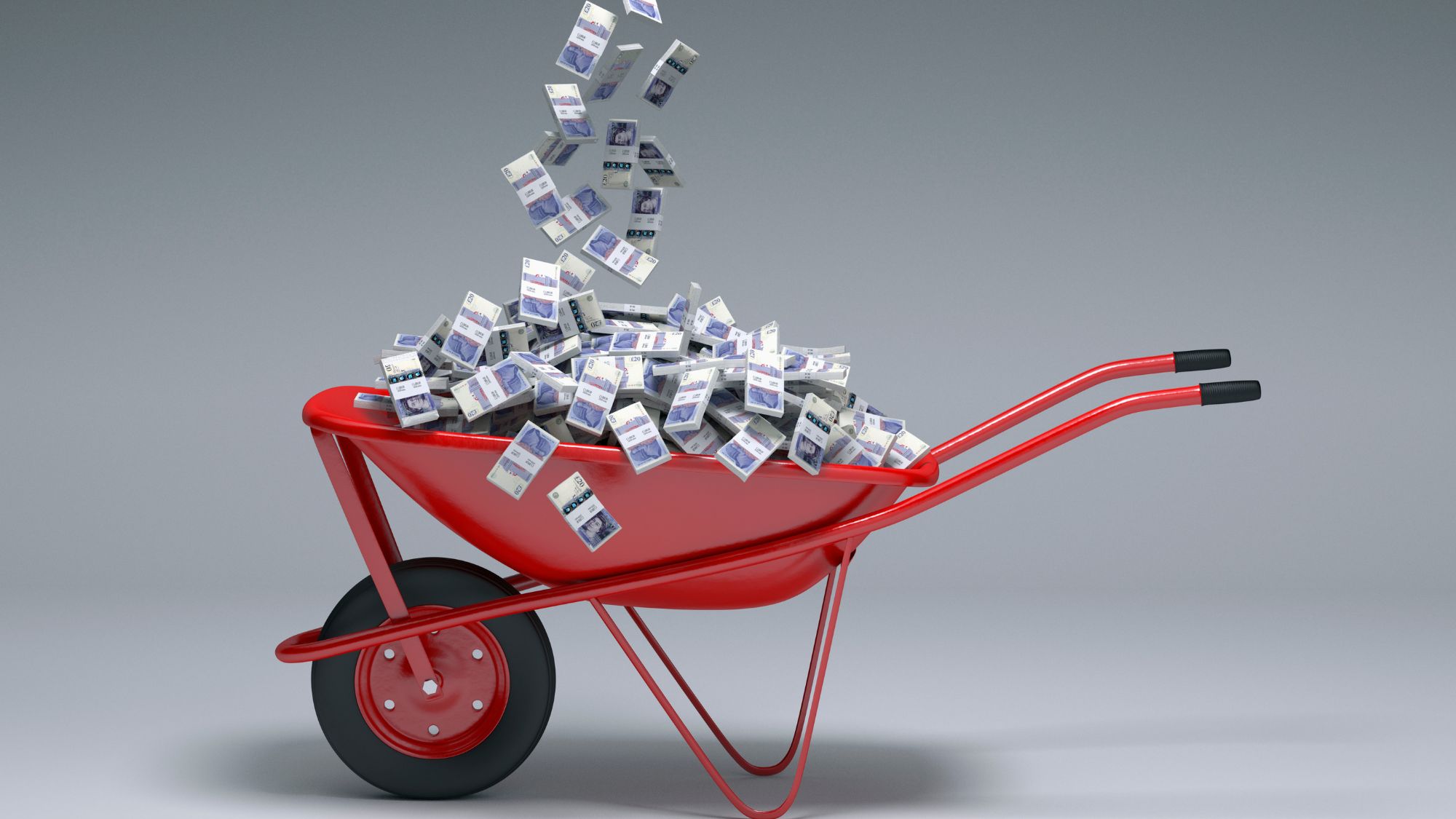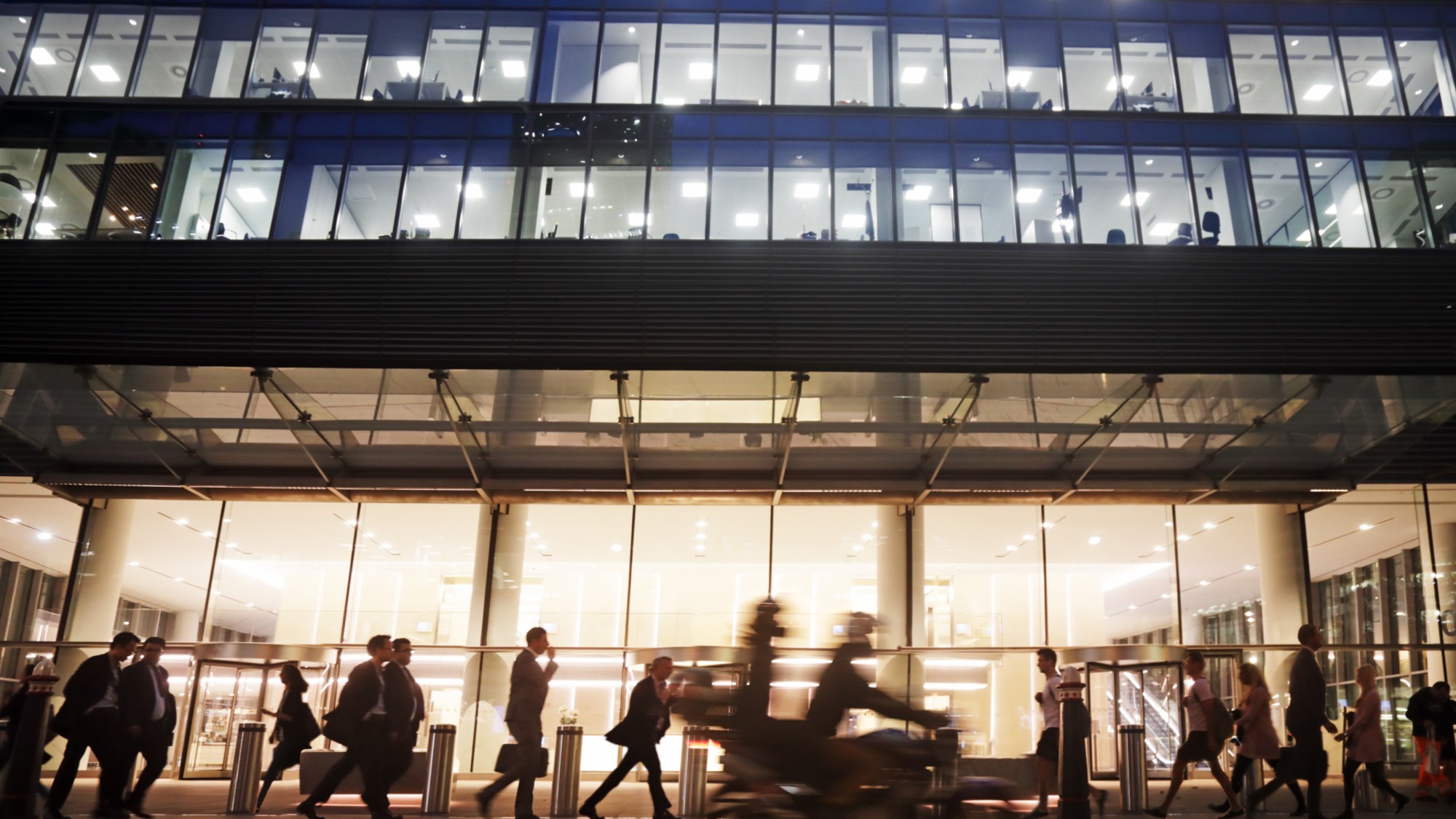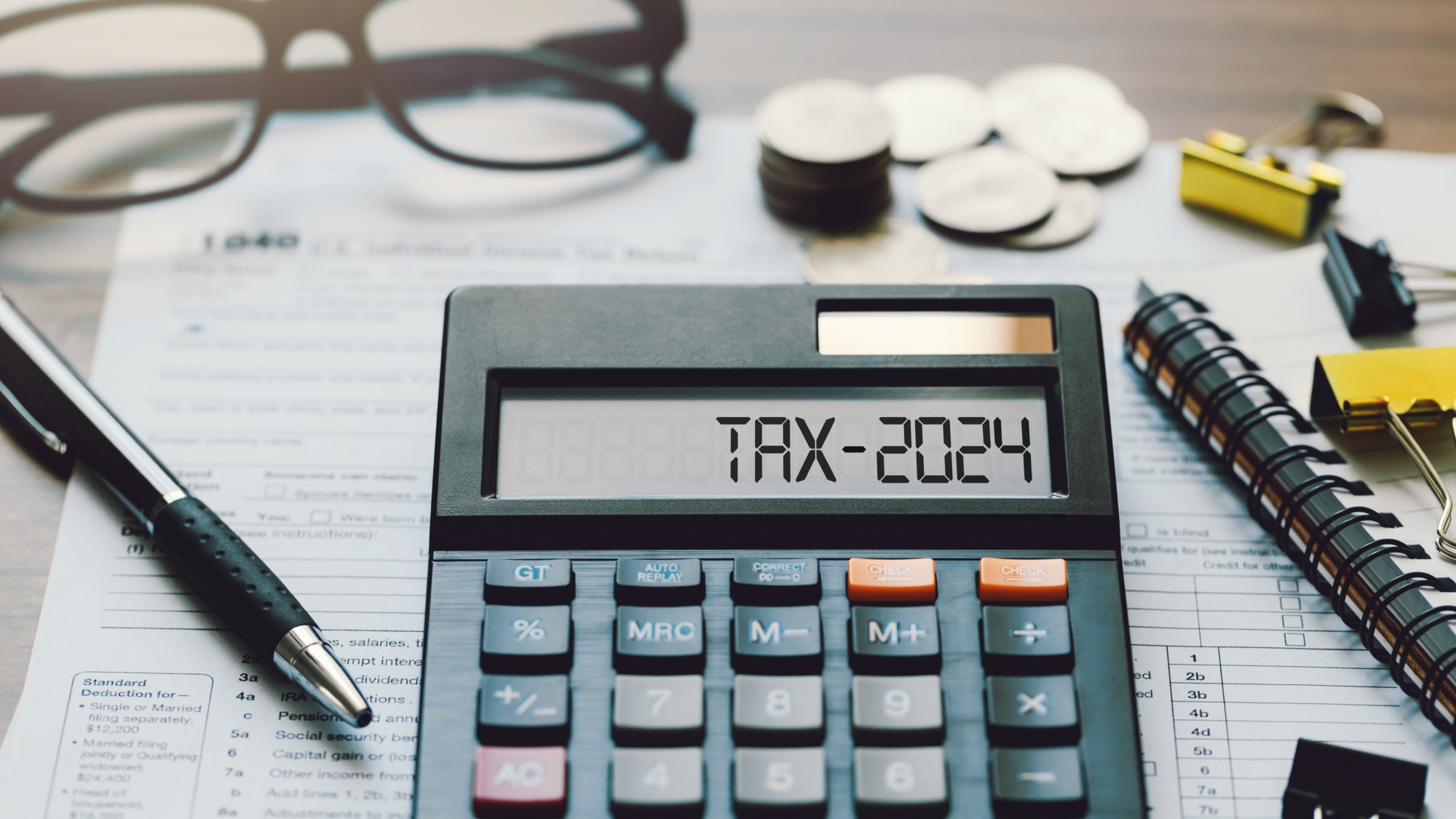How the clock change could impact your finances
The winter months can be more expensive but there are ways to keep your costs down

A free daily email with the biggest news stories of the day – and the best features from TheWeek.com
You are now subscribed
Your newsletter sign-up was successful
The clocks have gone back as we approach winter and as temperatures drop, there may be more pressure on your wallet.
Winter can be an “expensive time of year”, said Age UK, particularly with high energy bills to contend with and Christmas fast approaching.
The rising costs of the season can “put a chill on even the strongest of household budgets”, said StepChange.
The Week
Escape your echo chamber. Get the facts behind the news, plus analysis from multiple perspectives.

Sign up for The Week's Free Newsletters
From our morning news briefing to a weekly Good News Newsletter, get the best of The Week delivered directly to your inbox.
From our morning news briefing to a weekly Good News Newsletter, get the best of The Week delivered directly to your inbox.
Wages
If you worked a night shift when the clocks went back, you may be entitled to extra money this month.
Staff who are paid hourly or for set hours without time specifics, “should be getting paid an extra hour’s wage” if they did a night shift when the clocks changed, Will Burrows, a partner at Bloomsbury Square Employment Law, told The Sun.
And if your hourly rate is higher on a Sunday in your role, there is added “good news” as this sum will apply to the extra hour, too.
Car repairs
Insurers see the “highest rate of single vehicle claims” during the winter, said Policy Expert, as drivers are “far more likely” to lose control due to “poor road conditions” from ice, snow or rain.
A free daily email with the biggest news stories of the day – and the best features from TheWeek.com
Consequently, it is important to to “plan ahead” before venturing into the cold this winter, said the RAC, especially if you want to keep costs as low as possible. This includes knowing your route, ensuring you have petrol, oil and that fluid levels are topped up. Try to avoid potholes and road defects that can cause “unnecessary damage to your vehicle”.
The festive season
Shoppers are expected to spend an average of £1,371 in the six weeks before Christmas, said The Independent, despite a third of people feeling “financially worse off this year”.
The winter months are “never going to be a cheap time of year”, said Yahoo Finance, with Christmas approaching and the pressure of presents and parties.
So if you want to make sure your finances aren’t negatively impacted, it will be vital not to get carried away. Protect yourself with a “strict budget and a shopping list”.
With the nights drawing in, there is also the risk of lower serotonin levels that “can affect your mood”. As shopping “tends to release dopamine”, we can be more inclined to impulse spend, so always “stay alive” to these risks.
Energy bills
The winter months mean households will “start to reach for the thermostat”, said Which?, meaning higher energy bills.
There are “easy things” you can do to keep your energy bills down, such as DIY draught-proofing and “making the most of your boiler settings”.
Households can also consider “everyday actions and home improvements”, said Ofgem, including turning the heating down, setting the washing machine to 30 degrees and using smart controls so you can set your heating and hot water “to come on only when you need it”.
Crime waves
There is often a “seasonal rise in burglary and car crime” during the winter, said Met Engage, as criminals use the “cover of darkness” as an opportunity to strike.
Home and car owners can protect themselves by locking doors and windows, and making sure alarm systems are activated. External security lights can help “deter burglars by lighting up when someone approaches your property”.
Autumn Budget
Tax hikes and spending cuts are “almost inevitable” when the Autumn Budget is announced by the chancellor on 26 November, said MoneyWeek, due to “high borrowing costs, weak economic growth and stretched public services”.
Rumours include changes to property taxes and pension relief, but any reported changes are just rumours for now, said Fidelity, so making “snap decisions” could prove “very costly” to your finances in the long run.
Marc Shoffman is an NCTJ-qualified award-winning freelance journalist, specialising in business, property and personal finance. He has a BA in multimedia journalism from Bournemouth University and a master’s in financial journalism from City University, London. His career began at FT Business trade publication Financial Adviser, during the 2008 banking crash. In 2013, he moved to MailOnline’s personal finance section This is Money, where he covered topics ranging from mortgages and pensions to investments and even a bit of Bitcoin. Since going freelance in 2016, his work has appeared in MoneyWeek, The Times, The Mail on Sunday and on the i news site.
-
 El Paso airspace closure tied to FAA-Pentagon standoff
El Paso airspace closure tied to FAA-Pentagon standoffSpeed Read The closure in the Texas border city stemmed from disagreements between the Federal Aviation Administration and Pentagon officials over drone-related tests
-
 Political cartoons for February 12
Political cartoons for February 12Cartoons Thursday's political cartoons include a Pam Bondi performance, Ghislaine Maxwell on tour, and ICE detention facilities
-
 Arcadia: Tom Stoppard’s ‘masterpiece’ makes a ‘triumphant’ return
Arcadia: Tom Stoppard’s ‘masterpiece’ makes a ‘triumphant’ returnThe Week Recommends Carrie Cracknell’s revival at the Old Vic ‘grips like a thriller’
-
 How your household budget could look in 2026
How your household budget could look in 2026The Explainer The government is trying to balance the nation’s books but energy bills and the cost of food could impact your finances
-
 Six actions to protect your finances before the Autumn Budget
Six actions to protect your finances before the Autumn BudgetIn Depth Reforms to property taxes, pensions and inheritance tax may be on the agenda for the 2025 Autumn Budget. Here is how you can prepare
-
 What the 2025 Autumn Budget could mean for your wallet
What the 2025 Autumn Budget could mean for your walletThe Explainer Chancellor Rachel Reeves will reveal her latest plan to balance the nation’s finances in November
-
 How a UK wealth tax could work
How a UK wealth tax could workThe Explainer A levy could be on the agenda as Rachel Reeves attempts to get the nation's finances back on track
-
 3 tips to save for a cruise this year
3 tips to save for a cruise this yearThe Explainer The convenience of a cruise doesn't necessarily come cheap without some strategic planning
-
 Planning a trip? These are 3 budget-breaking mistakes to avoid.
Planning a trip? These are 3 budget-breaking mistakes to avoid.The Explainer Don't accidentally inflate your travel costs
-
 4 tips to save if you're returning to the office
4 tips to save if you're returning to the officeThe Explainer There are ways to protect your budget as you change your daily work routine
-
 The taxes Labour could raise to plug spending shortfalls
The taxes Labour could raise to plug spending shortfallsThe Explainer Chancellor Rachel Reeves has warned Labour inherited a 'black hole' spending gap from the Tories